Accounting Assignment: Budgeting, Ethical Implications, Excel Analysis
VerifiedAdded on 2023/06/15
|6
|754
|312
Homework Assignment
AI Summary
This accounting assignment solution focuses on the impact of sales revenue increases on a company's net income, specifically examining a scenario where a division manager, Carol Chadwick, is incentivized by a bonus system tied to net income exceeding budgeted figures. The solution calculates the bonus Carol would receive if she presented a budget with a 5% sales increase, while the actual growth was 12%. Furthermore, it delves into the ethical considerations of Carol potentially understating the budget to maximize her bonus, discussing the importance of responsibility, honest financial reporting, and avoiding conflicts of interest. The assignment emphasizes that ethical budgeting involves transparent decision-making and aligning financial priorities with the company's values, ensuring that officers do not prioritize personal profit over ethical considerations. Desklib provides access to this assignment solution along with a wealth of other solved assignments and past papers to support students in their academic journey.
1 out of 6
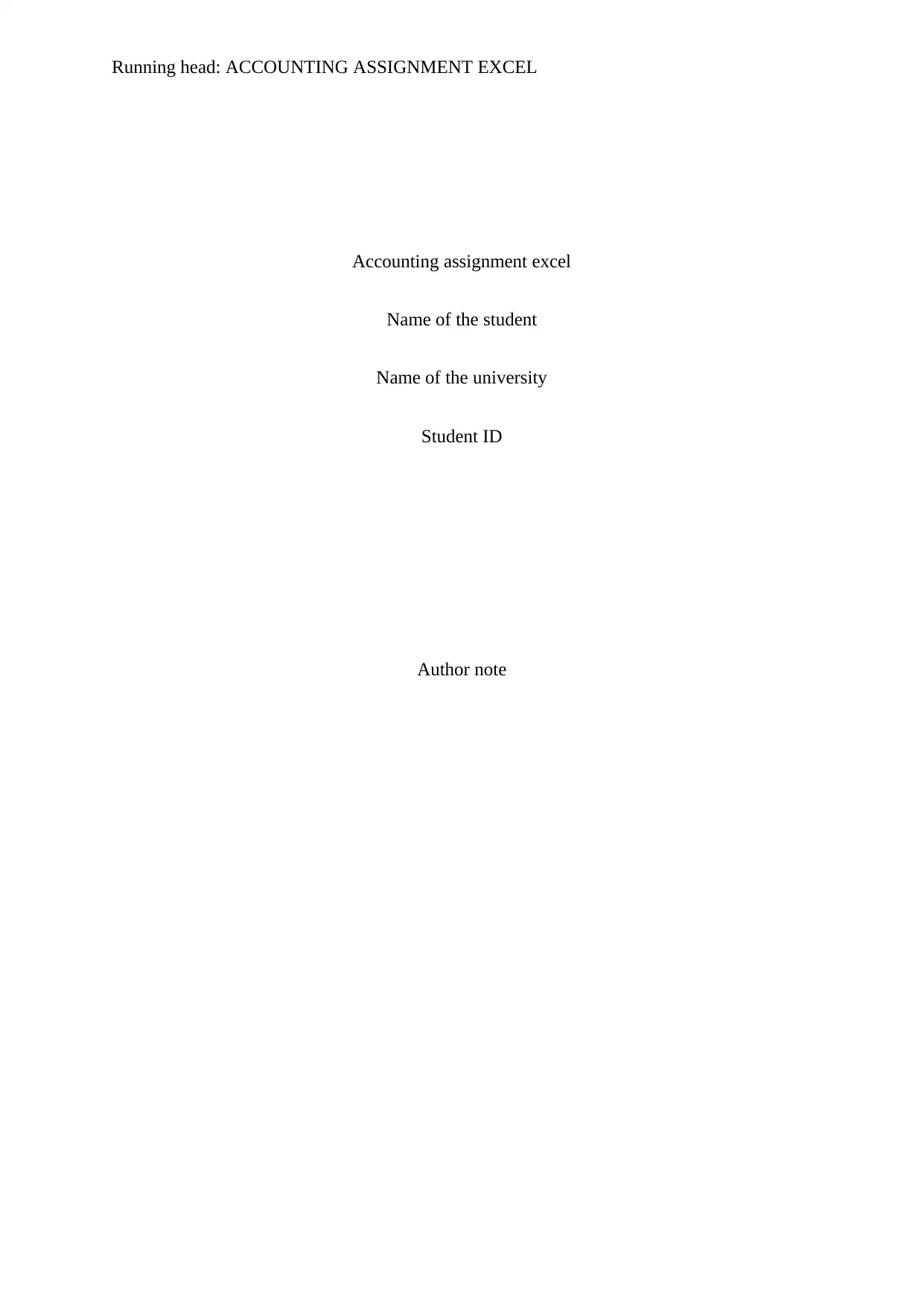
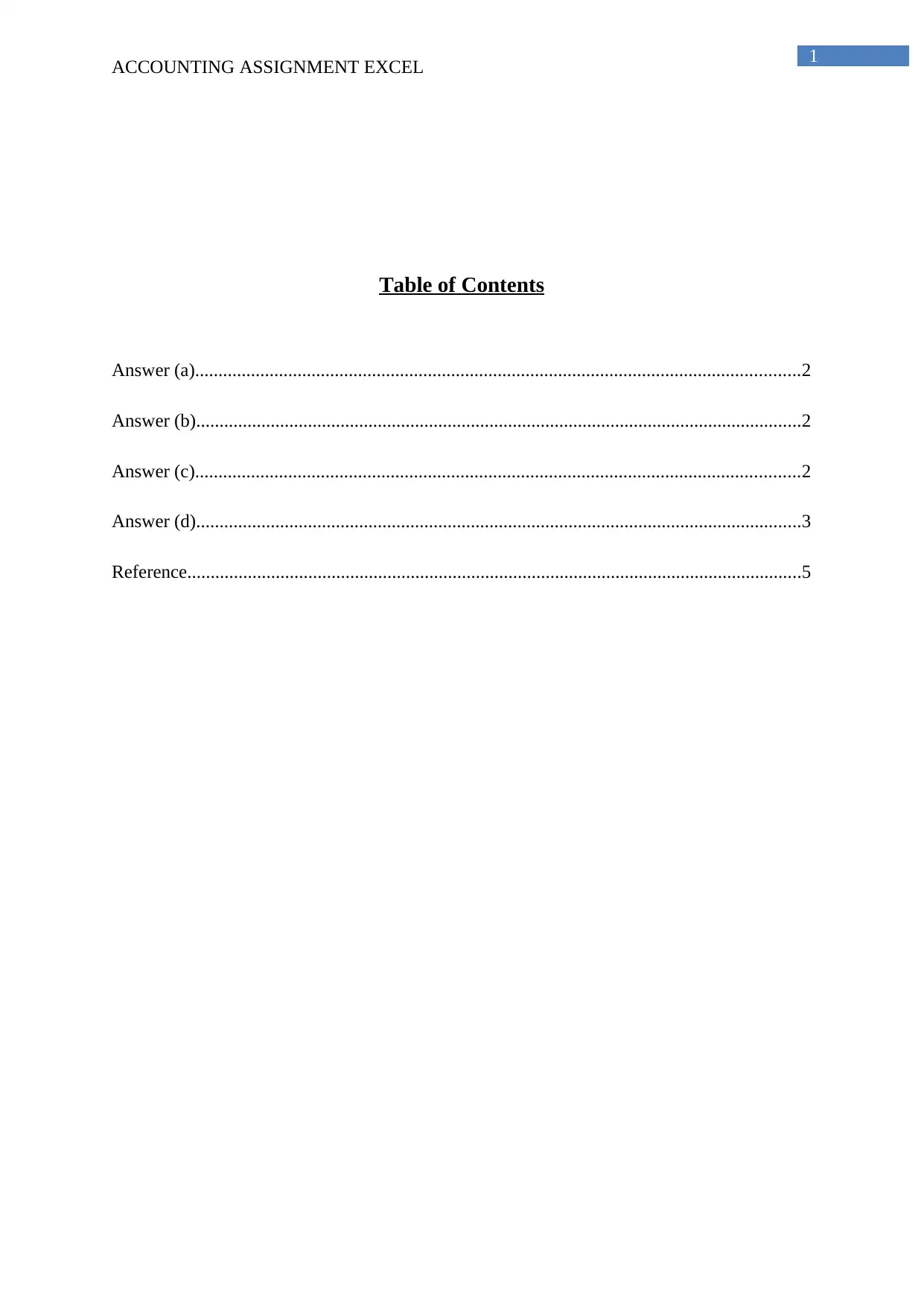
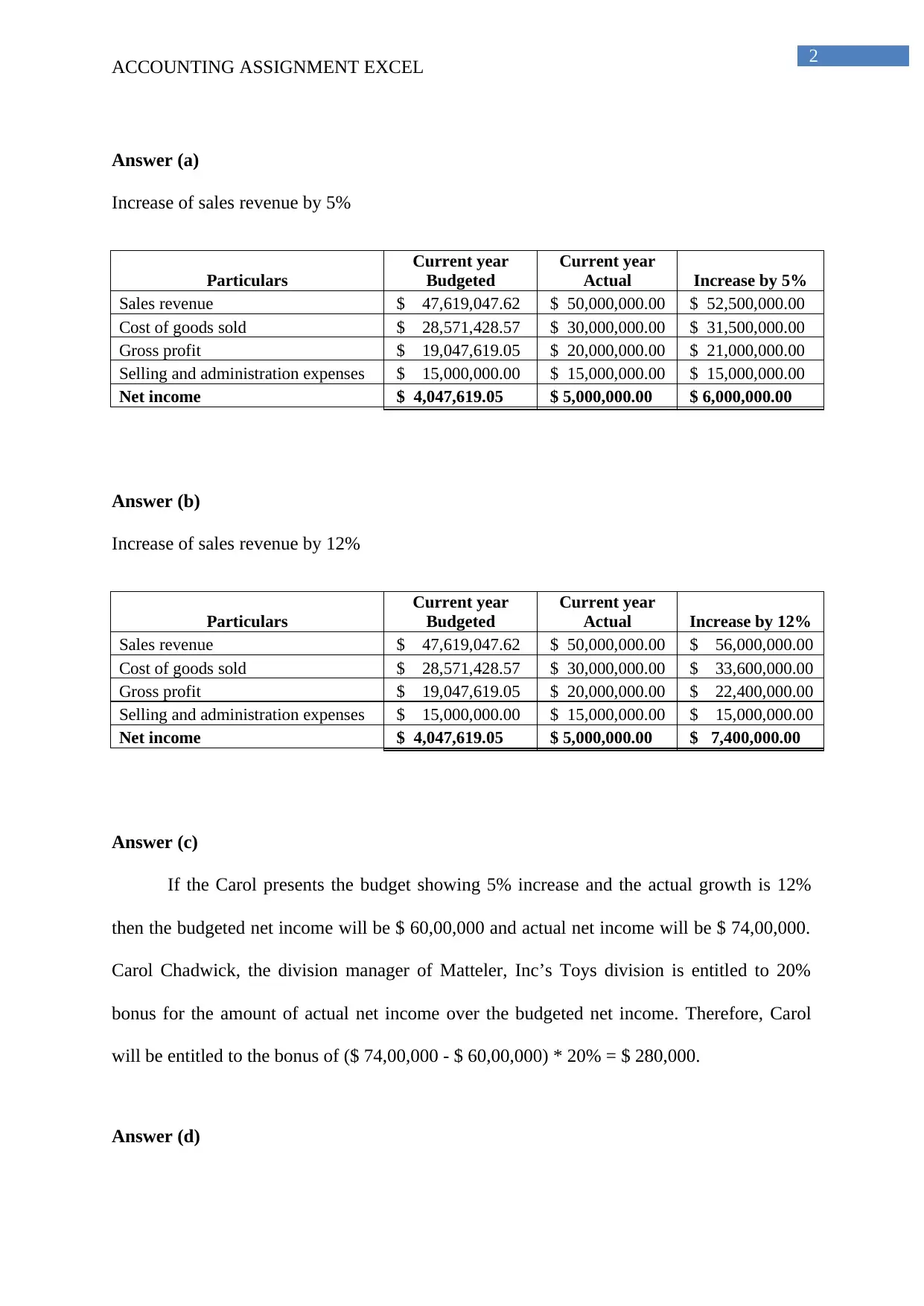

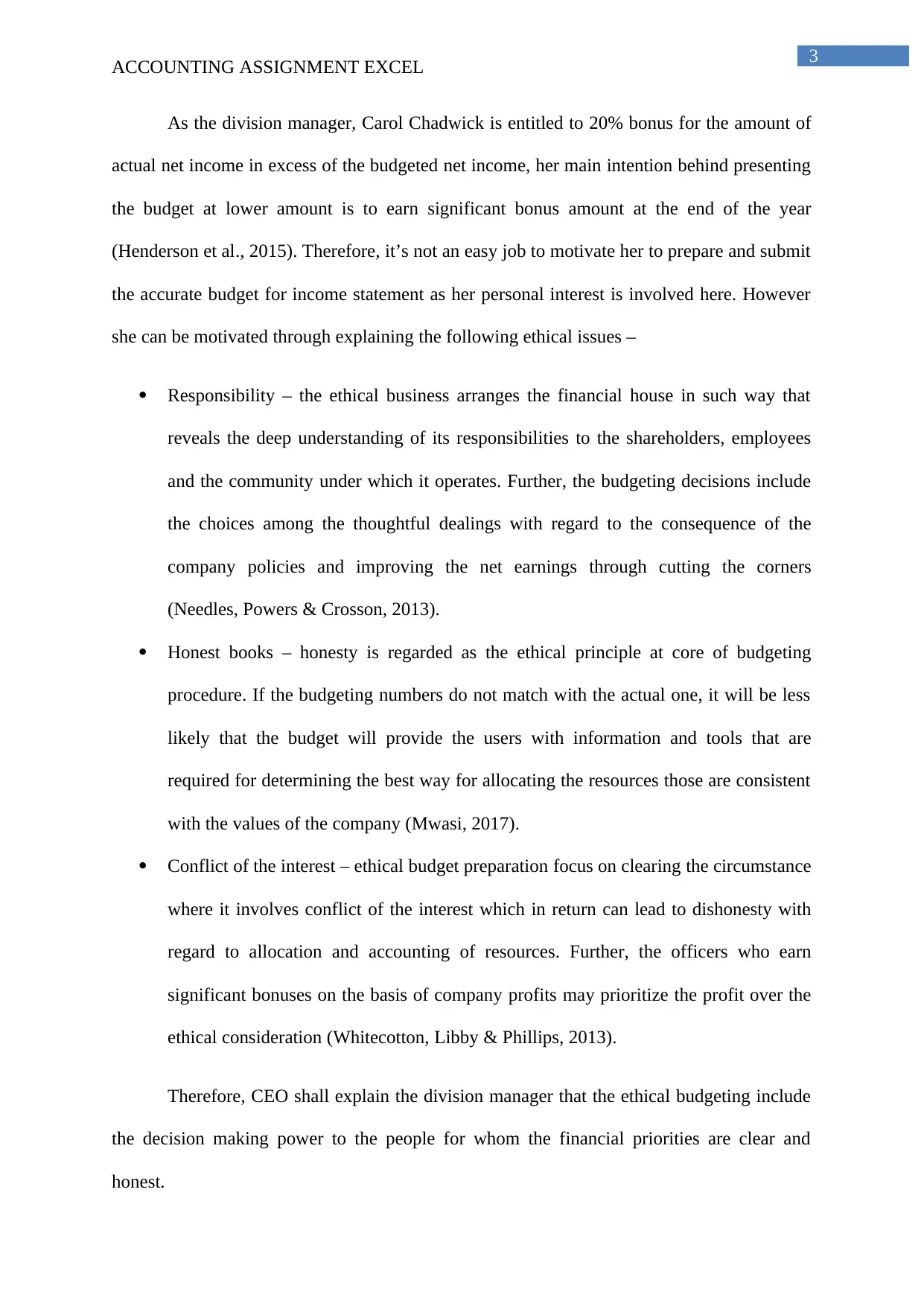

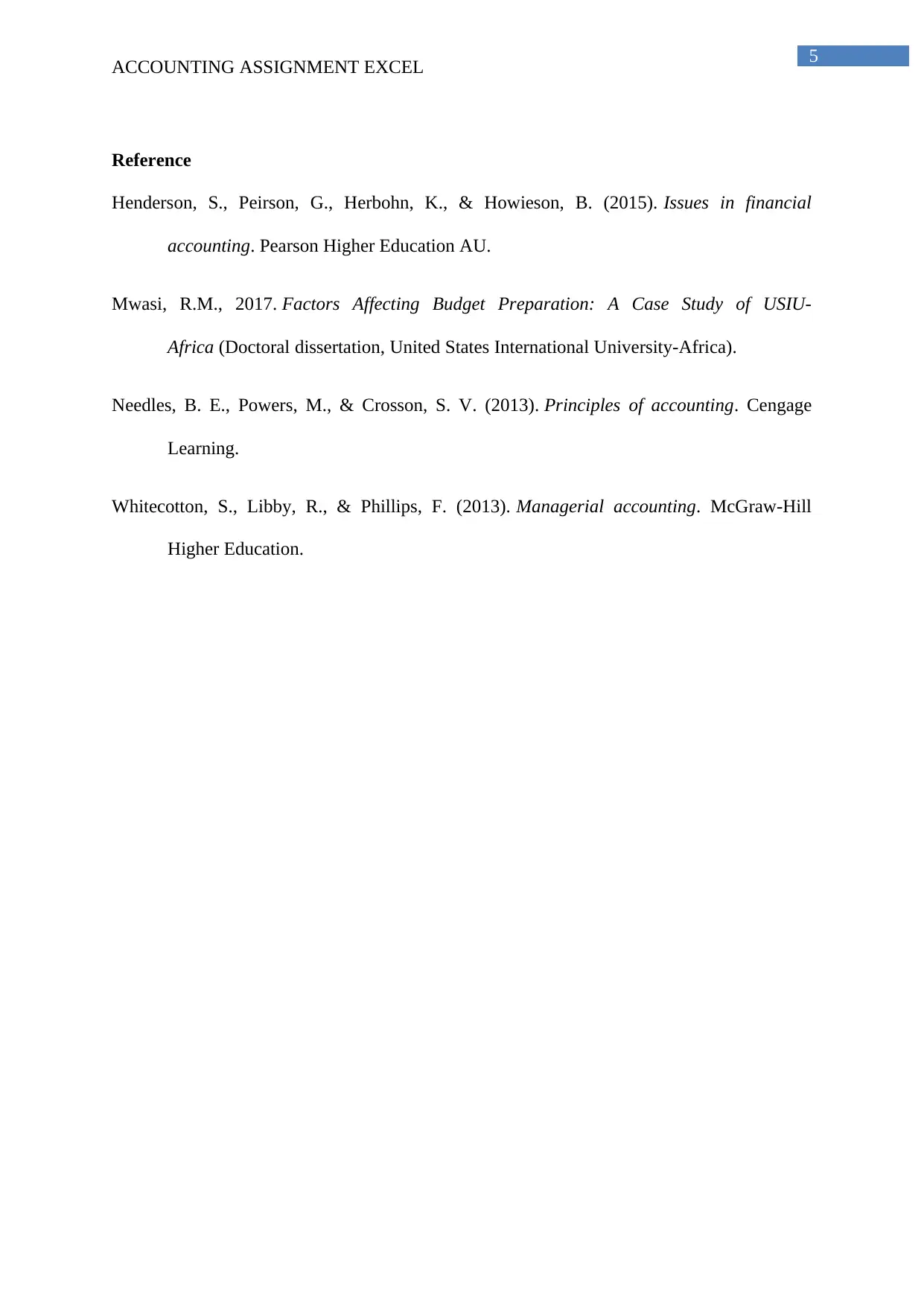
![[object Object]](/_next/static/media/star-bottom.7253800d.svg)